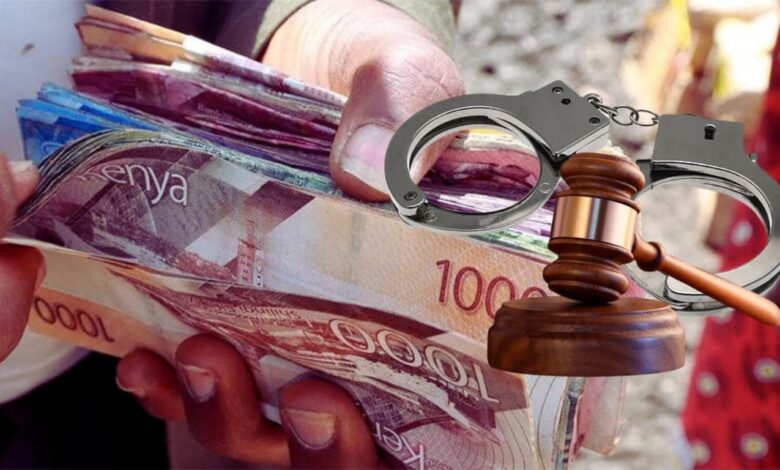
The government has boosted its efforts to combat dirty money as digital transactions provide more weak links for the circulation of such funds in areas such as banking, money remittance, and real estate. Kenya Money Laundering Betting Banking
Kenya is a key regional economic and tourist hub, as well as a gateway to the economies of neighboring East Africa, and it has well-developed trading linkages with the rest of the world.
However, while this geo-location has aided lawful commerce and allowed the country to flourish economically, the kind and volume of trade, as well as its worldwide links, have increased the country’s exposure to money laundering and terrorism funding problems.
In order to reduce the possibility of financial system abuse by local and transnational criminal networks, the government is progressively targeting various enterprises such as sports betting companies, real estate firms, legal firms, banks, and saccos.
This is aligned with the 2021 taskforce report on the National Risk Assessment on Money Laundering and Terrorist Financing, which found that Kenya’s geo-location, trade interconnectedness, and significant use of fintech have enhanced the country’s vulnerability to money laundering and terrorism financing.
The task force determined that the banking industry was the most vulnerable to money laundering, followed by real estate, money remittance companies, saccos, legal practitioners, and used car dealers.
The extensive reforms suggested in the Anti-Money Laundering and Combating of Terrorism Financing Law (Amendment) Bill, 2023, including tougher penalties for persons moving substantial amounts of undeclared cash, appear destined to bolster the piecemeal tightening of controls in these industries.
As the government cracks down on economic crimes such as financial terrorism and racketeering, real estate agencies, saccos, casinos, FX bureaus, and life insurance agents have become the latest targets.
Last Friday was the deadline for these organizations to register with the Financial Reporting Centre, the anti-money laundering authority.
Read More: SunBet Eyes Ghana, Kenya and Zambia Expansion After Reported Growth
The Central Bank of Kenya (CBK) mandated all money remittance providers (MRPs) last week to sell to banks all daily foreign exchange currency exceeding $100,000 (Sh14.7 million).
CBK has noted increased participation of MRP’s in the wholesale FX [foreign exchange market] without being required to comply with the various guidelines, standards, and codes of conduct that are in place.
said Mr Gerald Nyaoma, director of bank supervision at CBK.
The regulator made no mention of combating the danger of money laundering, but the measure appears to provide it with greater awareness of significant digital transactions occurring outside of banks.
The Sacco Societies Regulatory Authority (Sasra), which governs sacco operations in the country, has also encouraged members to tighten their reporting to avoid becoming money laundering conduits.
The regulator is worried that sacco investments in an asset class classed as “other assets” have increased significantly and warns that such a designation can be used as a cover for money laundering and terrorism funding.
The investment portfolio of non-withdrawable deposit-taking (NWDT) and deposit-taking (DT) saccos’ “other assets” increased from Sh5.03 billion in 2021 to Sh10.24 billion last year, troubling the regulator, who now wants full disclosure of what these investments truly are.
NWDT Saccos and their DT-Saccos counterparts are thus called upon to take proactive measures aimed at unpacking these huge “other assets” components of the portfolios in order to ward-off risks of fraudulent activities often associated with such “other assets” classifications,”
says Sasra.
They now join other financial sector actors, such as banks, where the government has tightened controls to ensure fair play.
From fining several important financiers for handling National Youth Service looted funds to requiring them to properly report cash receipts and withdrawals of $10,000 (Sh1.5 million) and above, the sector is under greater scrutiny.
The CBK warned banks in a January 2016 circular that significant cash transactions were marked by “informality and anonymity,” putting the banking sector vulnerable to money laundering and terrorism financing. Kenya Money Laundering Betting Banking























